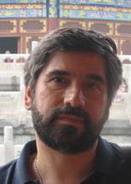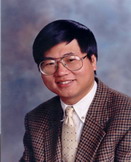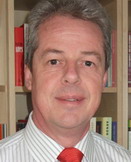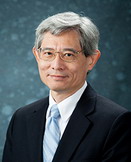 |
|
 Christos G. Cassandras is Head of the Division of Systems Engineering and Professor of Electrical and Computer Engineering at Boston University. He is also co-founder of Boston University's Center for Information and Systems Engineering (CISE). He received degrees from Yale University (B.S., 1977), Stanford University (M.S.E.E., 1978),and Harvard University(S.M., 1979; Ph.D., 1982). In 1982-84 he was with ITP Boston, Inc. where he worked on the design of automated manufacturing systems. In 1984-1996 he was a faculty member at the Department of Electrical and Computer Engineering, University of Massachusetts/Amherst. He specializes in the areas of discrete event and hybrid systems, stochastic optimization, and computer simulation, with applications to computer and sensor networks, manufacturing systems, and transportation systems. He has published over 300 refereed papers in these areas, and five books. He has guest-edited several technical journal issues and serves on several journal Editorial Boards. He has recently collaborated with The MathWorks, Inc. in the development of the discrete event and hybrid system simulator SimEvents. Christos G. Cassandras is Head of the Division of Systems Engineering and Professor of Electrical and Computer Engineering at Boston University. He is also co-founder of Boston University's Center for Information and Systems Engineering (CISE). He received degrees from Yale University (B.S., 1977), Stanford University (M.S.E.E., 1978),and Harvard University(S.M., 1979; Ph.D., 1982). In 1982-84 he was with ITP Boston, Inc. where he worked on the design of automated manufacturing systems. In 1984-1996 he was a faculty member at the Department of Electrical and Computer Engineering, University of Massachusetts/Amherst. He specializes in the areas of discrete event and hybrid systems, stochastic optimization, and computer simulation, with applications to computer and sensor networks, manufacturing systems, and transportation systems. He has published over 300 refereed papers in these areas, and five books. He has guest-edited several technical journal issues and serves on several journal Editorial Boards. He has recently collaborated with The MathWorks, Inc. in the development of the discrete event and hybrid system simulator SimEvents.
Dr. Cassandras was Editor-in-Chief of the IEEE Transactions on Automatic Control from 1998 through 2009 and has also served as Editor for Technical Notes and Correspondence and Associate Editor. He is the 2012 President of the IEEE Control Systems Society (CSS) and has served as Vice President for Publications and on the Board of Governors of the CSS. He has chaired the CSS Technical Committee on Control Theory, and served as Chair of several conferences. He has been a plenary speaker at many international conferences, including the American Control Conference in 2001 and the IEEE Conference on Decision and Control in 2002, and an IEEE Distinguished Lecturer.
He is the recipient of several awards, including the 2011 IEEE Control Systems Technology Award, the Distinguished Member Award of the IEEE Control Systems Society (2006), the 1999 Harold Chestnut Prize (IFAC Best Control Engineering Textbook) for Discrete Event Systems: Modeling and Performance Analysis, a 2011 prize for the IBM/IEEE Smarter Planet Challenge competition, a 1991 Lilly Fellowship and a 2012 Kern Fellowship. He is a member of Phi Beta Kappa and Tau Beta Pi. He is also a Fellow of IEEE and a Fellow of IFAC. |
| |
 Minyue Fu received his Bachelor's Degree in Electrical Engineering from the University of Science and Technology of China, Hefei, China,in 1982, and M.S. and Ph.D. degrees in Electrical Engineering from the University of Wisconsin-Madison in 1983 and 1987, respectively. From 1987 to 1989, he served as an Assistant Professor in the Department of Electrical and Computer Engineering, Wayne State University, Detroit, Michigan. He joined the Department of Electrical and Computer Engineering, the University of Newcastle, Australia, in 1989 and was promoted to a Chair Professor in Electrical Engineering in 2002. He has served as the Head of Department for Electrical and Computer Engineering and Head of School of Electrical Engineering and Computer Science over a period of 7 years. In addition, he was a Visiting Associate Professor at University of Iowa in 1995-1996, a Visiting Professor at Nanyang Technological University, Singapore, 2002, and Visiting Professor at Tokyo University in 2003. He has held a ChangJiang Visiting Professorship at Shandong University, a visiting Professorship at South China University of Technology, and a Qian-ren Professorship at Zhejiang University in China. He was elected to a Fellow of IEEE in late 2003. Minyue Fu received his Bachelor's Degree in Electrical Engineering from the University of Science and Technology of China, Hefei, China,in 1982, and M.S. and Ph.D. degrees in Electrical Engineering from the University of Wisconsin-Madison in 1983 and 1987, respectively. From 1987 to 1989, he served as an Assistant Professor in the Department of Electrical and Computer Engineering, Wayne State University, Detroit, Michigan. He joined the Department of Electrical and Computer Engineering, the University of Newcastle, Australia, in 1989 and was promoted to a Chair Professor in Electrical Engineering in 2002. He has served as the Head of Department for Electrical and Computer Engineering and Head of School of Electrical Engineering and Computer Science over a period of 7 years. In addition, he was a Visiting Associate Professor at University of Iowa in 1995-1996, a Visiting Professor at Nanyang Technological University, Singapore, 2002, and Visiting Professor at Tokyo University in 2003. He has held a ChangJiang Visiting Professorship at Shandong University, a visiting Professorship at South China University of Technology, and a Qian-ren Professorship at Zhejiang University in China. He was elected to a Fellow of IEEE in late 2003.
His main research interests include control systems, signal processing and communications. His current research projects include networked control systems, smart electricity networks and super-precision positioning control systems. He has been an Associate Editor for the IEEE Transactions on Automatic Control, IEEE Transactions on Signal Processing, Automatica and Journal of Optimization and Engineering. |
| |
 Ian R. Petersen was born in Victoria, Australia. He received a Ph.D in Electrical Engineering in 1984 from the University of Rochester. From 1983 to 1985 he was a Postdoctoral Fellow at the Australian National University. In 1985 he joined the University of New South Wales at the Australian Defence Force Academy where he is currently Scientia Professor and an Australian Research Council Laureate Fellow in the School of Engineering and Information Technology. Ian R. Petersen was born in Victoria, Australia. He received a Ph.D in Electrical Engineering in 1984 from the University of Rochester. From 1983 to 1985 he was a Postdoctoral Fellow at the Australian National University. In 1985 he joined the University of New South Wales at the Australian Defence Force Academy where he is currently Scientia Professor and an Australian Research Council Laureate Fellow in the School of Engineering and Information Technology.
He has served as an Associate Editor for the IEEE Transactions on Automatic Control, Systems and Control Letters, Automatica, and SIAM Journal on Control and Optimization. Currently he is an Editor for Automatica. He is a Fellow of IEEE and the Australian Academy of Sciences. His main research interests are in robust control theory, quantum control theory and stochastic control theory. |
| |
 Zongli Lin is a Professor of Electrical and Computer Engineering at University of Virginia, Charlottesville, Virginia, USA. Professor Lin received his B.S. degree in mathematics and computer science from Xiamen University, Xiamen, China, in 1983, his Master of Engineering degree in automatic control from Chinese Academy of Space Technology, Beijing, China, in 1989, and his Ph.D. degree in electrical and computer engineering from Washington State University, Pullman, Washington, in 1994. Zongli Lin is a Professor of Electrical and Computer Engineering at University of Virginia, Charlottesville, Virginia, USA. Professor Lin received his B.S. degree in mathematics and computer science from Xiamen University, Xiamen, China, in 1983, his Master of Engineering degree in automatic control from Chinese Academy of Space Technology, Beijing, China, in 1989, and his Ph.D. degree in electrical and computer engineering from Washington State University, Pullman, Washington, in 1994.
His current research interests include nonlinear control, robust control, time-delay systems, and control of magnetic suspension systems. In these areas, he has published four books and over 400 papers, over 180 of which are in archival journals.
He was an Associate Editor of IEEE Transactions on Automatic Control (2001-2003)and IEEE/ASME Transactions on Mechatronics (2006-2009)and has served on the operating committees and program committees of several conferences. He was an elected member of the Board of Governors of the IEEE Control Systems Society (2008-2010). He currently serves on the editorial boards of several journals and book series, including Automatica, Systems & Control Letters, Science China: Information Science,and Science Press/Springer Book Series on Systems and Control. He is a Fellow of IEEE and a Fellow of IFAC. |
| |
 Paul Van den Hof received the Ph.D. degree from Eindhoven University of Technology, The Netherlands in 1989. From 1986 he was with Delft University of Technology, where he was appointed as full professor in 1999, and since 2003 also founding co-director of the Delft Center for Systems and Control (DCSC), with appointments in the faculty of Mechanical, Maritime and Materials Engingeering, and the faculty of Aplied Sciences. As of 2011 he holds a full professor position in the Electrical Engineering department of Eindhoven University of Technology. Since 2005 he is also scientific director of the national research and graduate school "Dutch Institute of Systems and Control" (DISC). Paul Van den Hof received the Ph.D. degree from Eindhoven University of Technology, The Netherlands in 1989. From 1986 he was with Delft University of Technology, where he was appointed as full professor in 1999, and since 2003 also founding co-director of the Delft Center for Systems and Control (DCSC), with appointments in the faculty of Mechanical, Maritime and Materials Engingeering, and the faculty of Aplied Sciences. As of 2011 he holds a full professor position in the Electrical Engineering department of Eindhoven University of Technology. Since 2005 he is also scientific director of the national research and graduate school "Dutch Institute of Systems and Control" (DISC).
His research interests are in issues of system identification, identification for control, and model-based control and optimization, with applications in industrial process control systems, including petroleum reservoir engineering systems, mechanical servo systems and physical measurement systems.
He has been a member of the IFAC Council (1999-2005), the editorial board of Automatica (1992-2005), and the Board of Governors of IEEE Control Systems Society (2003-2005). He is a Fellow of IFAC and a Fellow of IEEE. |
| |
 Wong Wing Shing graduated from Yale University with a combined M.S. and B.A. degree and obtained an M.S. degree and a Ph.D. degree from Harvard University. He is an IEEE Fellow and a Fellow of the Hong Kong Institution of Engineers (FHKIE). Wong Wing Shing graduated from Yale University with a combined M.S. and B.A. degree and obtained an M.S. degree and a Ph.D. degree from Harvard University. He is an IEEE Fellow and a Fellow of the Hong Kong Institution of Engineers (FHKIE).
He joined AT&T Bell Laboratories in 1982 and from 1987 to 1992 served as a Technical Staff Supervisor. He joined the Chinese University of Hong Kong in 1992 and is now a Professor of Information Engineering. He was the Chairman of the Information Engineering Department from 1995 to 2003. He served as the Science Advisor at the Innovation and Technology Commission of the HKSAR government from 2003 to 2005 and was a Board Director and the Chairman of the Technical Committee of the Hong Kong Applied Science and Technology Research Institute (ASTRI) from 2006 to 2008. He has served as the Dean of the Graduate School in the Chinese University of Hong Kong since 2005.
He is the Principal Investigator of more than a dozen of competitive research grants supported by funding agencies including the Research Grants Council of Hong Kong and the National Natural Science Foundation of China.
He served as an Associate Editor of the IEEE Transactions on Automatic Control for 4 years. He has co-founded with other internationally renowned researchers an international journal, Communications in Information and Systems, and is now serving as the co-Editor-in-Chief. He was a member of the 7th Council of the Chinese Association of Automation. He is a Visiting Professor of Southeast University and Fujian Normal University.
|
| |
 Demin Xu is an Academician of Chinese Academy of Engineering (CAE). He completed his postgraduate study in the Department of Underwater Ordnance at the Northwestern Polytechnical University (NPU) in 1964. From 1987 to 1988, he was a visiting scholar in Department of Electrical Engineering and Computer Science at the University of Michigan, Ann Arbor. He is now a Professor and Director of the Academic Committee of National Science & Technology Laboratory for Underwater Information & Control. He served as the Vice President of NPU and the Dean of Graduate School of NPU. He was a member of Subject Evaluation Group of the Academic Degree Committee of State Council, a member of the Underwater Ordnance Research Group of the General Armament Department, and a member of Hong Kong Council for Academic Accreditation. Demin Xu is an Academician of Chinese Academy of Engineering (CAE). He completed his postgraduate study in the Department of Underwater Ordnance at the Northwestern Polytechnical University (NPU) in 1964. From 1987 to 1988, he was a visiting scholar in Department of Electrical Engineering and Computer Science at the University of Michigan, Ann Arbor. He is now a Professor and Director of the Academic Committee of National Science & Technology Laboratory for Underwater Information & Control. He served as the Vice President of NPU and the Dean of Graduate School of NPU. He was a member of Subject Evaluation Group of the Academic Degree Committee of State Council, a member of the Underwater Ordnance Research Group of the General Armament Department, and a member of Hong Kong Council for Academic Accreditation.
Professor Xu has been engaged in teaching and scientific research for more than 40 years, and dedicated to research and development on control, navigation and design of Autonomous Underwater Vehicles (AUVs). He has completed more than 30 important R&D projects and won three National Prizes for Progress in Science and Technology (one for the first class and two for the second class), more than 20 awards and honors at the provincial and ministrialry levels, and the prize for Science and Technology Progress of the Ho Leung Ho Lee Foundation. He published 5 books and more than 300 papers in international and domestic journals and conferences, and has patented 12 inventions. He has supervised more than 100 postdoctoral research fellows, Ph. D students and Master students, and two of his Ph.D. students won the National Hundred Excellent Doctoral Dissertations award. He won the first class prize of National Teaching Achievement Award and two special class prizes of Provincial Teaching Achievement Award. His research team was awarded the National Defense Science Innovative Research Team from the National Defense Division, the Advanced Education Team from the Ministry of Education, and was supported by Program for Changjiang Scholars and Innovative Research Team in Universities. |
